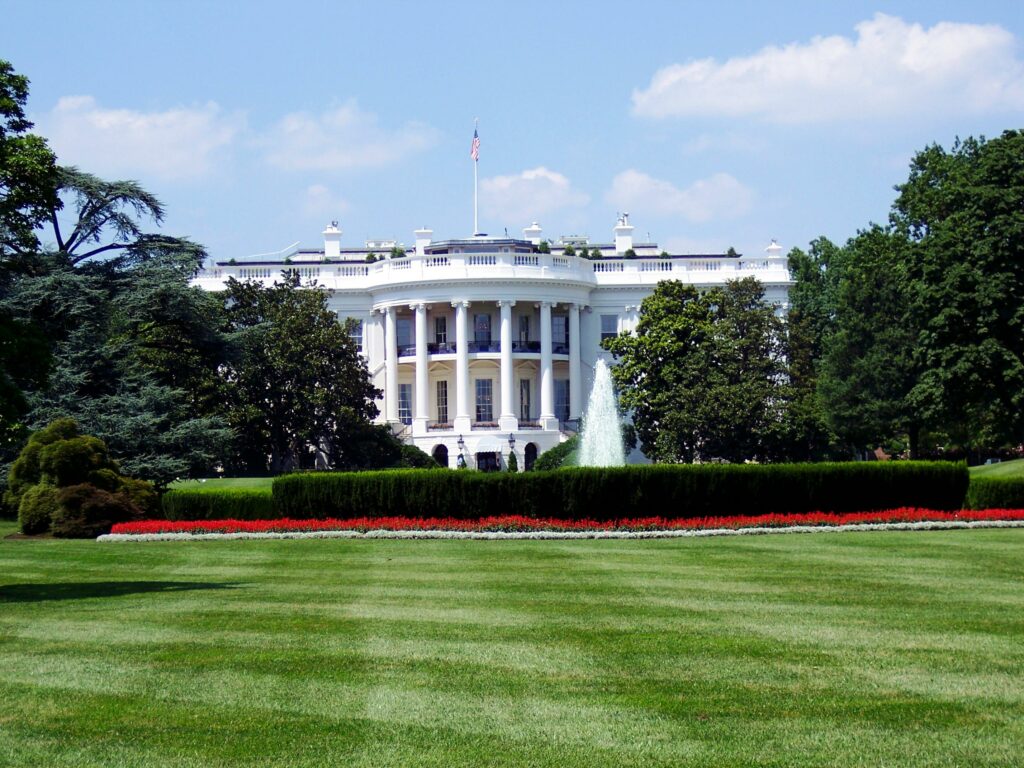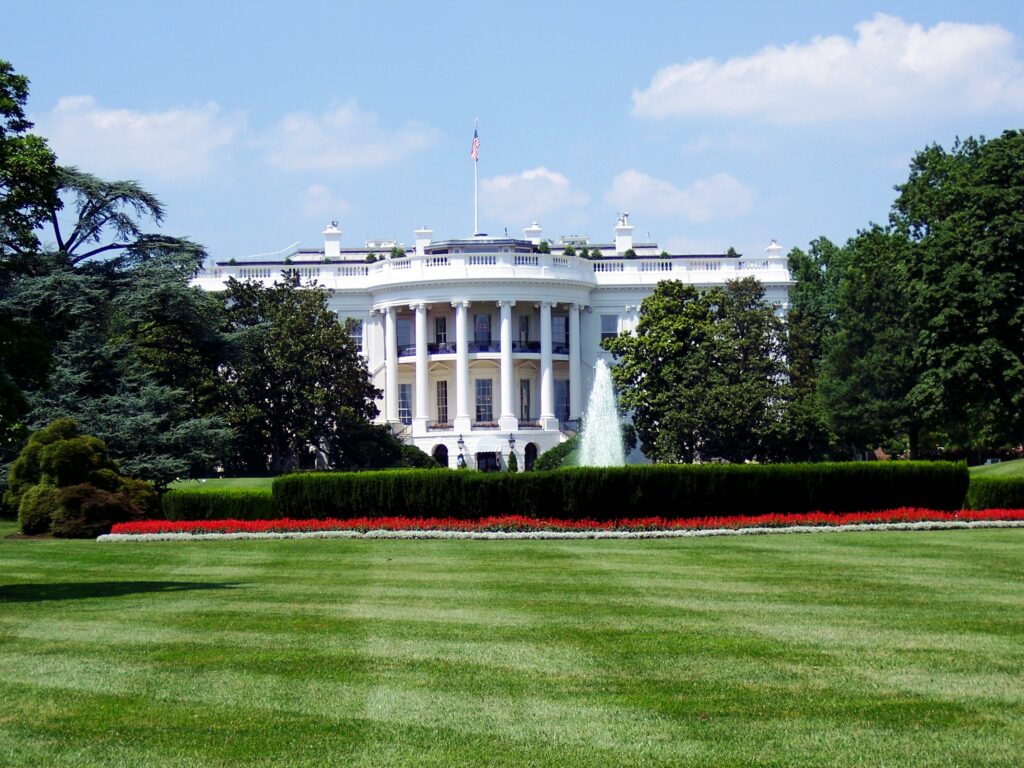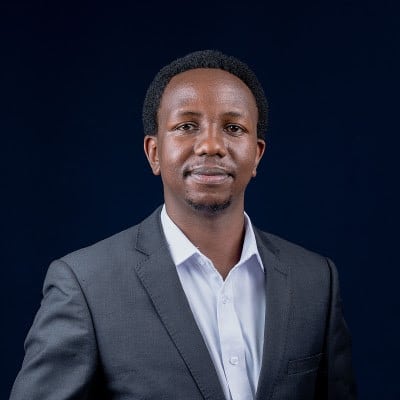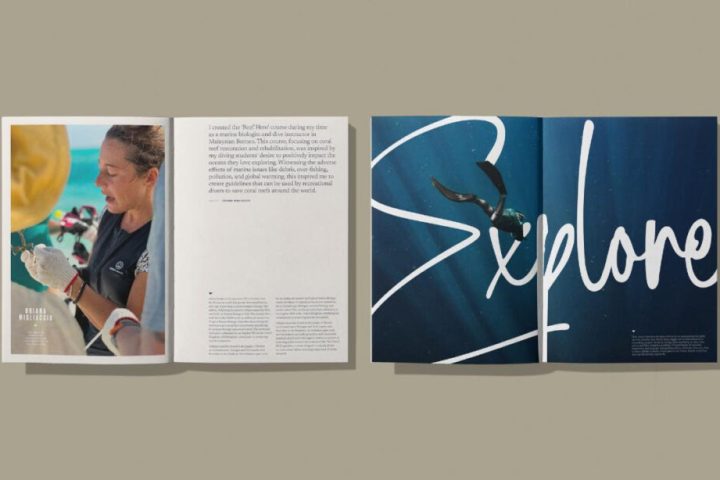
WASHINGTON DC, USA, 29 May 2024 -/African Media Agency(AMA)/- In March and April 2023, Vice President Harris embarked on a historic trip to Africa, with a focus on investing in African innovation. In addition to her bilateral meetings in Ghana, Tanzania, and Zambia, the Vice President met with young artists, tech entrepreneurs, students, women business leaders, and farmers, in an effort to highlight and advance the extraordinary creativity, ingenuity, and dynamism on the continent.
As the Vice President said in her speech in Accra to nearly 8,000 Ghanaian youth, “African ideas and innovations will shape the future of the world…. And so we must invest in the African ingenuity and creativity, which will unlock incredible economic growth and opportunities, not only for the people of the 54 countries that make up this diverse continent, but for the American people and people around the world. So the Biden-Harris administration and the American people stand ready to partner with you, to help accelerate the innovation and entrepreneurship that is already underway.”
Join our WhatsApp ChannelAs part of her trip, the Vice President worked with African partners to galvanize U.S., African, and global private sector investments for the continent, such as more than $7 billion in climate adaptation, resilience, and mitigation commitments and $1 billion in commitments to empower African women—advancing women’s economic security and closing the gender digital divide—including the announcement of the Women in the Digital Economy Fund (WiDEF).
Building on these efforts, during her trip and over the past year, the Vice President has worked to promote digital inclusion in Africa. In her speech in Accra, the Vice President said that the United States is committed to build collaborations between public and private industries to increase digital inclusion on the continent of Africa. She said the United States will “double down” on our effort to mobilize millions of dollars in public and private capital from the United States, Africa, and around the world to increase digital inclusion.
She has focused her efforts on digital inclusion because Africa’s digital ecosystem has great potential to promote economic opportunity, advance social equality and gender equality, and create jobs. Africa’s digital transformation has opened new markets for U.S. exports and services; deepened partnership among African governments, the U.S. private sector, educational institutions, and the African diaspora; and increased productivity, competitiveness, and e-government service delivery. And while Africa has continued growth in its digital infrastructure over the past decade, and is leading the world in digital solutions in some areas, there are places on the continent where there is a lag, and we must close the digital divides – across gender, urban/rural, income, age, ethnicity, and ability.
To that end, in Lusaka, the Vice President convened business and philanthropic leaders to promote digital inclusion across the continent. In this convening, the Vice President issued a “Call to Action” to business and philanthropic leaders to make direct investments and social impact commitments in support of the Digital Transformation with Africa (DTA) initiative. President Biden launched DTA at the U.S.-Africa Leaders Summit in December 2022, as part of the broader Partnership for Global Infrastructure and Investment, to expand digital access and literacy and strengthen digital enabling environments across the continent. Since DTA’s launch, the United States government has invested $82 million in new digital infrastructure, programming, and projects in Africa.
Today, the Vice President is announcing the following public-private partnerships, coordinated on behalf of the U.S. government and under the President’s Digital Transformation with Africa initiative by the Department of Commerce, which are responsive to her Call to Action in Lusaka, and a series of additional U.S. government and private sector initiatives to promote digital inclusion on the continent.
Mobilizing Access to the Digital Economy (MADE) Alliance: Africa
- Digital transformation requires an ecosystem of complementary partners to drive connectivity, skilling, employment, financial, and other critical services via digital access. To coordinate efforts and multiply their impact, the African Development Bank Group and Mastercard are launching today, in response to the Vice President’s Call to Action, the Mobilizing Access to the Digital Economy (MADE) Alliance: Africa, which aims to provide digital access to critical services for 100 million individuals and businesses in Africa over the next 10 years. MADE Alliance: Africa will have an initial focus on supporting the agricultural sector and women, including a pilot program launching this year to provide digital access for three million farmers in Kenya, Tanzania, and Nigeria, and quickly expanding to Uganda, Ethiopia, and Ghana, and the rest of the continent thereafter.
- Founding Alliance partners each commit to reach at least 10 million individuals with other Alliance partners over the first five years by focusing on their complementary strengths while working in the same communities:
- African Development Bank Group will invest $300 million to supporting Alliance programs, providing funding for digital infrastructure and incentivizing ecosystem actors to enhance digital access.
- Mastercard will register 15 million users in Africa onto its Community Pass platform, providing the interoperable digital infrastructure to facilitate involvement from a range of ecosystem participants.
- Equity Bank Group will provide accessible, affordable, and inclusive financial services to farmers and micro-, small-, and medium-sized agricultural businesses to support building of the digital ecosystem.
- Microsoft will empower community hubs and digital agents with the necessary connectivity, digital tools, and skilling to become pivotal digital interaction points for essential community services.
- Heifer International will catalyze last mile digital visibility and traceability in agriculture through ecosystem strengthening and curated financial and technical support for micro, small, and medium enterprises and entrepreneurs.
- Unconnected.org will contribute its technology and management expertise to provide meaningful internet access at affordable costs through savings on hardware, software and connectivity services.
- African Development Bank Group will invest $300 million to supporting Alliance programs, providing funding for digital infrastructure and incentivizing ecosystem actors to enhance digital access.
- The MADE Alliance: Africa will develop commercially sustainable models that uplift local private sector institutions to drive sustainable digital access to critical services. For the first program to support 3 million farmers across Kenya, Tanzania, and Nigeria, the Alliance is working with local banks to provide digital identities and access to high-quality seeds and agricultural inputs. Additionally, Syngenta Foundation will develop sustainable models for first mile delivery to reach 2 million smallholder farmers in Kenya and Nigeria via local entrepreneurs.
- Mastercard is entering into a Public Private Partnership with the International Trade Administration, a bureau within the U.S. Department of Commerce, to advance digital access and inclusion in Africa based on a mutual interest to support the aims of the U.S. Government’s Digital Transformation with Africa initiative, including through the MADE Alliance: Africa. ITA represents the Department in its role as co-chair of the Africa Digital Policy Council (ADPC) and co-lead for Pillar I of the DTA initiative, which focuses on digital economy and infrastructure.
Partnership for Digital Access in Africa (PDAA)
- The non-profit Partnership for Digital Access in Africa (PDAA) was created, in response to the Vice President’s Call to Action, to bring together private and public sector leaders from Africa, the United States, and other parts of the world to bridge Africa’s digital divide. To advance the goals of DTA, PDAA will support African institutions to double the number of people connected to, and meaningfully using, the internet in Africa, from 40% to 80%, connecting one billion people by 2030, and to increase connectivity for women and girls from 30% to 80%.
PDAA intends to support DTA along three core pillars:
- Expand affordable internet and broadband services: PDAA and partners will make the highest performance and lowest cost broadband available to as many Africans as possible.
- Lower device cost: PDAA and partners will work to improve accessibility by making internet-enabled devices (smartphones) and digital technology more affordable throughout Africa. PDAA and its partners will work to ensure an equitable gender ratio of those who have access to these devices, further advancing the goal of increasing connectivity for women and girls in Africa.
- Enhance digital skills: PDAA and partners will assist in the upskilling of millions of Africans with the necessary capacity to effectively and efficiently use digital technology and to maximize their chances of meaningful employment.
- PDAA has aligned goals with initial partners including World Bank Group’s International Finance Corporation, Smart Africa, America’s Frontier Fund, the African Leadership Group, LifeHikes, SpaceX, HMD Global, and Nokia.
- PDAA has entered into a Public Private Partnership with the International Trade Administration, a bureau within the U.S. Department of Commerce, to advance digital access and inclusion in Africa based on a mutual interest to support the aims of the U.S. Government’s DTA initiative.
Women in the Digital Economy Fund (WiDEF) and Initiative
- The digital gender divide hampers women’s economic participation and limits their access to critical online services, undermining economic growth, sustainable development, and women’s full participation in the 21st century economy. To help close this gap and improve women’s livelihoods, economic security, and resilience, Vice President Harris launched the Women in the Digital Economy Fund (WiDEF) in 2023, with an initial $50 million investment from USAID and $10 million investment from the Bill & Melinda Gates Foundation, half of which focused on Africa. Today, the Vice President is pleased to announce that the Fund and related Women in the Digital Economy Initiative have now generated over $1 billion in public and private commitments to accelerate gender digital equality. Together with the Women in the Sustainable Economy (WISE) Initiative, which Vice President Harris launched during the Asia Pacific Economic Cooperation (APEC) leaders’ week in November 2023, total commitments for women’s economic empowerment initiatives announced by the Vice President have reached $3 billion.
- Building on the Vice President’s leadership, today’s announcement includes an additional $500,000 in direct U.S. contributions to the Fund and $46 million in aligned U.S. commitments to the Initiative, for a total of $102 million in U.S. direct and aligned commitments since the launch of WiDEF pending Congressional Approval. The Vice President is also announcing $145 million in new, aligned partner commitments to the Women in the Digital Economy Initiative from government, multilateral, private sector, philanthropic, and civil society partners to accelerate progress towards the historic G20 Leaders’ commitment to halve the digital gender divide by 2030.
- The U.S. government is announcing additional direct and aligned investments from the U.S. Agency for International Development, the Millennium Challenge Corporation, the U.S. Department of State, and the U.S. International Development Finance Corporation. New aligned investments with a focus on Africa include:
- The U.S. Agency for International Development (USAID) will provide $1 million—in addition to Girls First Kenya, Ltd. providing $800,000—to support young women using Girls First Finance, a digital financing platform, to access student loans, mentorship, job placement support, safeguarding support, and budgeting tools.
- The Millennium Challenge Corporation (MCC) will provide an estimated $40 million through 2029 to initiatives that aim to support women to acquire digital and financial literacy skills in Indonesia, Lesotho, Côte d’Ivoire, and Togo. Country initiatives include a digital innovation partnership with the World Bank in Lesotho to work with local financial institutions to pilot digital finance products for women entrepreneurs; the Digifemmes MCC partnership with USAID, Microsoft, and the Government of Cote d’Ivoire to empower women-led SMEs with skills to grow their business activities and access opportunities in the digital economy; and the Nana Tech program to provide digital and data skills to women-owned SMEs in MCC’s Togo Threshold program.
- The U.S. Department of State has awarded a $300,000 grant through 2025 to the International Telecommunication Union under the EQUALS Global Partnership for Gender Equality in the Digital Age to help reduce the many barriers faced by women and girls in harnessing the benefits of digital access and transformation, including in Burundi, Libya, and the Dominican Republic.
- Government, multilateral, private sector, philanthropic, and civil society partners announcing commitments to the Initiative include the Government of Jersey; the Asian Development Bank, Inter-American Development Bank Group, and the African Development Bank Group; and private sector partners the Mozilla Foundation, Shell Foundation, Mastercard Community Pass, Pfizer, Haqdarshak, HP, Unilever, Cherie Blair Foundation for Women, and Cisco. New aligned investments with a focus on Africa include:
- Mozilla Foundation is providing over $7.5 million through 2027 to initiatives that focus on closing the gender digital divide by advancing more trustworthy artificial intelligence. Initiatives seek to empower consumers, including women, to demand better online privacy and safe online experiences; to support activists and thought leaders shaping the future of our online lives through funding, mentorship, and networking—including with a focus on women’s digital and human rights across Africa through the Africa Mradi program and with a focus on technology through the Responsible Computing Challenge; and to research threats to a healthy internet, highlighting bright spots, and providing solutions, such as how artificial intelligence can support greater inclusion and gender equity.
- Jersey is providing $5 million by 2027 to support the digital financial inclusion of over 72,000 women and girls, especially those in rural areas, in Ethiopia, Malawi, Rwanda, Nepal, and Zambia. Programs seek to facilitate enterprise development, improve livelihoods, and build resilience among marginalized and previously excluded groups through access to affordable, appropriate digital financial products and services.
- Shell Foundation and the United Kingdom’s Foreign, Commonwealth and Development Office have committed $3.6 million toward a collaboration with Mastercard Community Pass and Co-operative Bank of Kenya that seeks to provide 100,000 smallholder farmers—including 40,000 women farmers—access to affordable credit to buy clean energy tools that support farmers’ incomes, such as solar-powered irrigation pumps. The program will also provide farmers with gender-sensitive financial literacy training. The program will create additional economic opportunities by aiming for at least 70% of the digital field agents working directly with farmers to be women.
- Pfizer has invested $300,000 by 2024 to develop and launch the “Living With” app in Africa to help reduce the stigma of a cancer diagnosis and increase women’s ability to learn about the disease, treatments, and how they can navigate the emotional, physical and practical challenges of living with cancer. The app has launched in Kenya and will be available soon in Nigeria and Tanzania, with the ability to reach the nearly 125,000 reported women living with cancer across these countries.
- HP, in collaboration with Girl Rising, has committed to support 5.2 million students, teachers, and caregivers—including 2.7 million women and girls—in Nigeria, India, and the United States with a new inclusive curriculum and wide dissemination of online content to develop their voice, agency, and life skills—an investment toward their target of accelerating digital equity for 150 million people by 2030. In Nigeria, HP and Girl Rising are collaborating with 1 Million Teachers to deliver a gender-focused online course as part of the Black Belt Program, designed to empower teachers—82,500 of which are female—to provide students with skills, resources, and mentors through an online platform, and to network the teachers through an online community platform.
- Unilever PLC is reaching 2.5 million small and medium enterprises by 2026, with a significant focus on women, working to raise the living standards of women in their value chain through digital technology programs in India, Indonesia, Madagascar, Côte d’Ivoire, Pakistan, Ethiopia, the Philippines, and Thailand. Programs include a mobile platform through which micro-retailers and small and medium enterprises can purchase Unilever stock, access promotions, and better manage their inventory.
- Cherie Blair Foundation for Women is aiming to reach 200,000 more women globally by 2026 to start and grow successful micro and small businesses as well as digitize their enterprises by delivering business skills training through the Foundation’s award winning HerVenture mobile app. HerVenture has already supported 100,000 women in South Africa, Nigeria, Kenya, Guyana, Indonesia, and Vietnam and is looking to scale its impact across Africa and Asia.
- Cisco will evolve its Cisco Networking Academy skills-to-jobs pathways to address the impact of generative artificial intelligence; this will enable individuals pursuing entry-level cyber job roles to be equipped with cutting edge skills to do their jobs more effectively. In addition, building upon its recent launch of the Edge Center, a Cybersecurity Technology Experience Centre, in Kenya, Cisco and partners will help to provide the skills and knowledge necessary to detect, prevent and respond to cyber threats. As part of this work, Cisco will pursue collaborations to increase female participation in cybersecurity skills training.
- Mozilla Foundation is providing over $7.5 million through 2027 to initiatives that focus on closing the gender digital divide by advancing more trustworthy artificial intelligence. Initiatives seek to empower consumers, including women, to demand better online privacy and safe online experiences; to support activists and thought leaders shaping the future of our online lives through funding, mentorship, and networking—including with a focus on women’s digital and human rights across Africa through the Africa Mradi program and with a focus on technology through the Responsible Computing Challenge; and to research threats to a healthy internet, highlighting bright spots, and providing solutions, such as how artificial intelligence can support greater inclusion and gender equity.
Distributed by African Media Agency (AMA) on behalf of The White House.
The post FACT SHEET: Vice President Harris Announces Public and Private Sector Commitments to Advancing Digital Inclusion in Africa appeared first on African Media Agency.
Source : African Media Agency (AMA)

















Follow Us